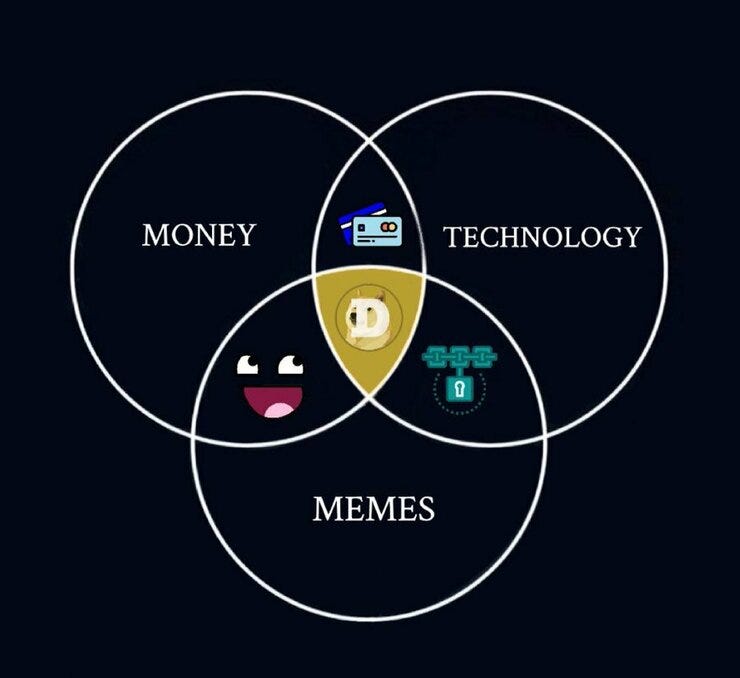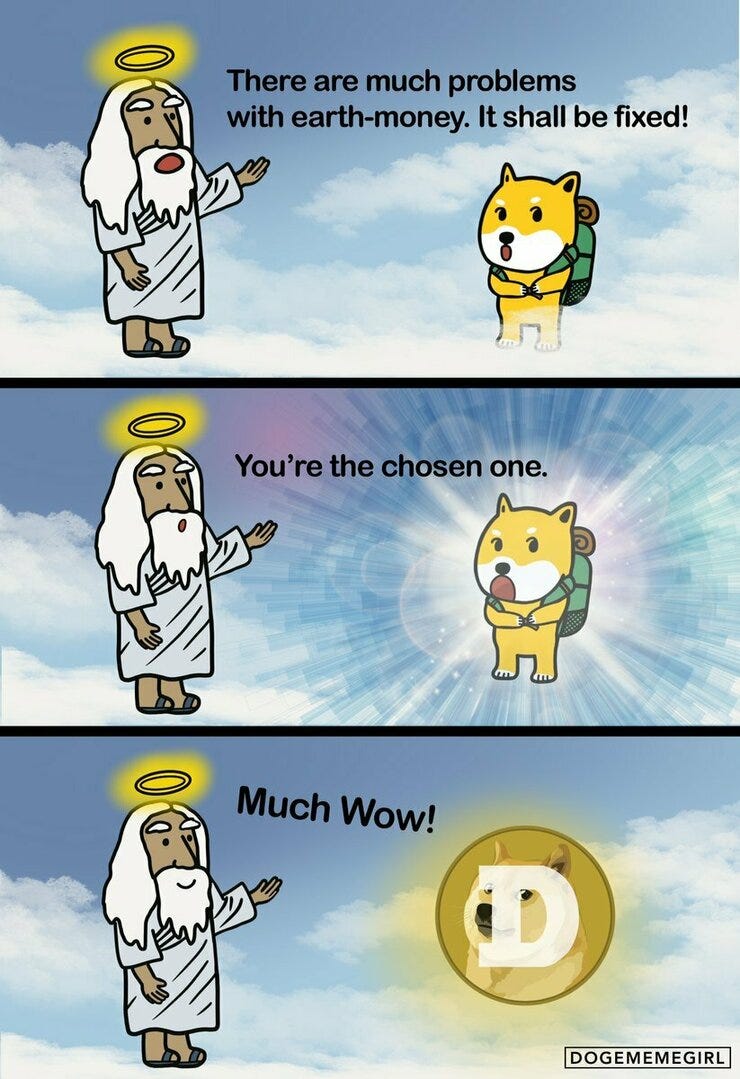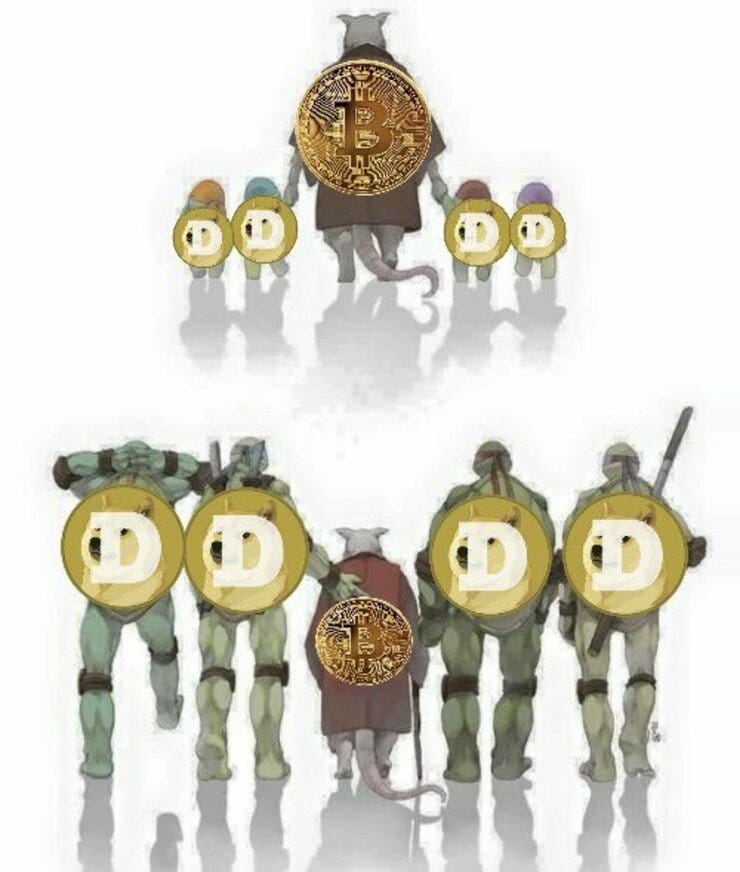Shorts, Scams, and Grifts: Navigating Crypto's Underbelly
Hey everyone,
Crypto is filled with bad actors.
Shorts, scams, and grifts are three ways shady entities try to separate regular folks from their money.
Let’s take a look at the three horsemen of the cryptopocalypse, and how Doge solves them.
Shorts
Big money players use short-selling to manipulate markets.
Hedge funds borrow Dogecoin held on an exchange and sell it on the open market.
Later, when price drops, these same groups will buy back Doge and return it to the exchange, completing the transaction, called covering the short.
Short sellers' profit is the difference between the price they initially sold and the cheaper price at which they bought back.
A trader who shorts Doge at 10 cents and covers at 8 cents makes 2 cents per coin, minus the interest they pay to execute the trade.
If price goes up instead of down, shorts can lose money. Losses can be infinite because there's no limit to how much a stock or coin can go up.
Shorting is technically legal, but also kind of scammy because it can be used by powerful financial entities to create artificial sell pressure on an asset, distorting its price.
Exchanges participate because they make interest lending Dogecoin to short-sellers.
Dogecoin has been a target of institutional shorting for a while.
Lately, there's been a push by retail investors to remove coins from exchanges, which makes it more costly short.
To keep Dogecoin out of shorts' hands, the DogeArmy has been moving coins to self-custodial wallets like MyDoge.
Self-custody is equivalent to having your own bank in cyberspace and comes with added responsibility.
The most important thing is to have a backup of the wallet's seed phrase, which acts like a password to the digital bank vault.
Some folks engrave their seed phrase on titanium plates to protect against weather and other disasters.
It's also smart to start by moving small amounts into self-custody and build comfort over time.
Another thing to keep an eye on is the release of Robinhood's upcoming self-custodial wallet, which could lead to removal of liquidity from short-selling pools.
The ultimate goal is for Dogecoin to spread widely across the Internet and be in constant use as tender for goods and services.
The more utility Doge gains, the farther it spreads and harder it will be to short.
Scams
Scams are another way malicious entities use crypto to separate regular folks from their money .
While short-sellers are usually large financial entities, it's not clear who's behind most crypto scams.
For some reason, crypto scams love to use Elon's name.

In the past few weeks, deep fake videos of Elon promoting Bitcoin giveaways have started popping up on social media.
Interestingly, scammers prefer to offer free Bitcoin in Elon's name, rather than Doge.
Scams like these prey on novice investors and give crypto a bad name.
Unfortunately, both Twitter and YoutTube do a poor job of policing this type of content, so the best thing for the present is to maintain a high index of suspicion, especially for anything that claims to give away free crypto.
Grifts
Grifts are a subspecies of scams that rely on personal reputation rather than anonymity.
In most cases, grifters operate within the bounds of the law, but promise something they know they'll never deliver.
Celebrities have a long and lamentable history of using crypto to grift their fans.
In politics, the term 'Grifter' has become a popular epithet to insinuate that an enemy's moral crusade is really just a cash grab.

Last week, Dogecoin co-founder Jackson Palmer told an Australian news site that Elon was a "grifter" who "sells a vision" and doesn't understand coding.
Business Insider, whose accusations against Elon from May have yet to be corroborated with evidence, seized on the comments to run another hit piece against him.
Palmer is not currently involved in Dogecoin and runs a podcast called Griftonomics. He claims cryptocurrency "is an inherently right-wing, hyper-capitalistic technology" designed to make its proponents richer.
Elon hit back at Palmer by challenging him to release code that Palmer previously claimed would eliminate crypto scams from Twitter. Elon tweeted at Palmer in 2018 for help with the problem.
On Tuesday, Palmer posted a link to the code and acknowledged that it would not work today because scammers have become more sophisticated.
The episode is an example of the term "grifter" being used to try to discredit someone by associating financial success with immorality.
As usual, Dogecoin absorbed the negative attention and emerged stronger than ever. According to data from LunarCrush, the dustup caused Doge's social media engagement to skyrocket.
The three horsemen
There are plenty of baddies in the crypto space.
Shorts, scams, and grifts are three ways bad actors separate regular folks from their money. Worse, they discourage novices from entering the crypto space.
Among cryptocurrencies, Doge is uniquely insulated from scammers and grifters.
Doge inverts the formula of hiding dishonesty under a veneer of trustworthiness. Because Doge presents outwardly as a joke, bad actors avoid it.
As crypto matures, it'll be interesting to see how scams, shorts, and grifts are dealt with.
In the meantime, stay alert, keep learning, and Doge on.
Dogey Treats: News Bites
Elon said he had a "super bad feeling" about the economy. Joe Biden, who has said Americans has achieved a historic financial recovery under his administration, sarcastically wished Elon "lots of luck on his trip to the moon." Elon thanked Biden.
AI day has been pushed back to September 30th. Elon said a working prototype of Tesla's Optimus robot may be ready by then.
Elon filed a letter threatening to walk away from the Twitter purchase unless the company provides data on spam and fake accounts. Texas AG Ken Paxton launched an investigation into Twitter for deceiving Texas consumers over false reporting of bot accounts. A new study found at least 12% of Twitter traffic is made up of bots.
Elon posted a series of spicy memes about inflation, the evolution of politics, CIA surveillance, JFK/Pokemon, chemtrails/Disney, looney tunes, and the missing Epstein/Maxwell client list.
Dr. Timothy Ursich Jr., a US Senate candidate from California, said he would draft a bill to make Dogecoin a form of national legal tender. He called on Elon and Billy to support his campaign.
The Big3 basketball league relaunched NFT sales for team ownership. The Big3's Aliens released a video of an Alien-like Doge.
Chipotle now accepts cryptocurrencies, including Dogecoin.
GEC's Samuel Reid provided an update on Doge-1, saying that it is "on track for launch."
Kanye filed a number of blockchain-related trademarks.
Snoop Dogg is opening a Bored Ape-themed restaurant in LA
UnusualWhales posted a review of Federal Reserve members' well-timed selling ahead of the recent market downturn.
Tesla scored 100/100 for LGBTQ+ workplace inclusion for the 7th year in a row, according to the Human Rights Foundation.
Cynthia Lummis will reveal a bill to fully integrate crypto into the financial system this week.
Jack Dorsey asked when did the dollar lose global reserve currency status?
Shib's creator has gone dark.
Patrick Lodder released a 1.14.6 update plan for Dogecoin core.
The DogeArmy has been working to identify owners of the top Dogecoin wallets. Most are exchanges.
According to data from the US Mint, demand for gold bullion exploded in May.
Janet Yellen admitted she was wrong about inflation.
The SEC produced a bizarre advertising campaign against retail investors and "meme stocks"
Elon said that Trump was supportive of his endeavors when in office, but he "hesitate[s] to admit that, because there are a lot of people that foam at the mouth if you even mention his name!"
Thank You!
Thanks for reading! Consider sending a tip or Super Following on Twitter to help keep the newsletter going!
DJ2zTEdHBD3guHLfVaNBaypr6bHFG5Nwfw
Memes of the Week
It's ALL Risky!
Thank you, kind reader, for reading and subscribing to this newsletter. I really appreciate it!
If you haven’t already, please sign up to this email newsletter for more weekly articles like this one. Also, please share it with a friend or on twitter if you enjoyed this article.
What do you think? Is more financial education needed? Let me know!
Remember, Dogecoin is risky. But then again, it’s all risky!
Follow on twitter at @itsALLrisky
Send an email to itsALLrisky@gmail.com
Send a Doge tip: DJ2zTEdHBD3guHLfVaNBaypr6bHFG5Nwfw
This article was written in collaboration with @CryptoDogDivine, give them a follow!
Don't forget to subscribe to this newsletter!
Disclaimer: This is not financial advice and I am not a financial advisor. The article above references an opinion for entertainment purposes only and it is not investment advice. Always assume that the author of the article is actively trading and that the opinions expressed may be biased towards the author’s holdings. Do your own research and consult with a licensed financial adviser before making any investment decision. Do not treat any opinion expressed in this newsletter as a specific inducement to make a particular investment. Content, news, research, tools, and securities symbols are for educational and illustrative purposes only and do not imply a recommendation or solicitation to buy or sell a particular security or cryptocurrency or to engage in any particular investment strategy. The information provided is not warranted as to completeness or accuracy and is subject to change without notice. The projections or other information regarding the likelihood of various investment outcomes are hypothetical in nature, are not guaranteed for accuracy or completeness, do not reflect actual investment results and are not guarantees of future results. All investments involve risk, losses may exceed the principal invested, and the past performance of a security, industry, sector, market, cryptocurrency, or financial product does not guarantee future results or returns. Dogecoin is a speculative and highly volatile asset susceptible to pump-and-dump schemes.
At the time of publication, Dogecoin is around $0.08 per coin.


















